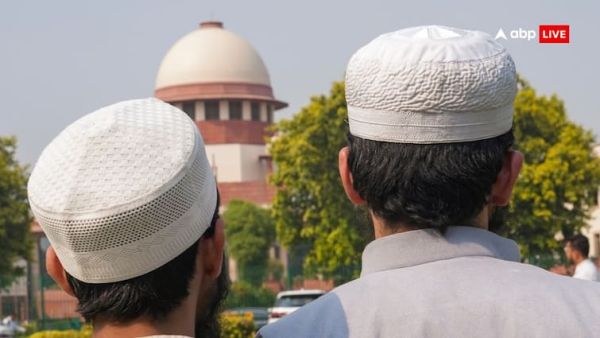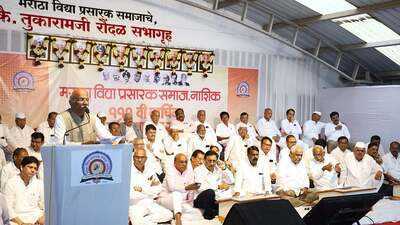
The Supreme Court on Monday, September 15, put on hold the provision in the Waqf Amendment Act 2025 that a person should be a practitioner of Islam for five years to create a Waqf.
The Supreme Court said the provision will be stayed till rules are framed on determining whether a person is a practitioner of Islam. The Supreme Court, however, refused to stay all provisions of the Waqf (Amendment) Act, 2025. The court said that some of the sections needed some protection, though.
The interim order was passed by a Bench of Chief Justice of India (CJI) BR Gavai and Justice Augustine George Masih.
As per legal news website Live Law, the court in its order said: "We have held [that] presumption is always on the constitutionality of statute and in rarest [cases], it can be done. We have found that the entire act is challenged, but the basic challenge was sections 3(r), 3C, 14; we have gone to the legislative history from the 1923 Act and considered the prima facie challenge to each section and hearing parties, a case was not made out for the entire statute."
Granting the stay on the need for 5 years as a practising Muslim, the SC said that the provision has failed. "Until rules are formed, it would lead to arbitrary exercise of powers," it said.
What Is The Five-Year Clause In Waqf Act?
The five-year practice clause in the Waqf Act refers to the rule requiring an individual to be a practising Muslim for at least five years before dedicating property as waqf. The SC Bench said there were no clear state rules to determine who qualifies as a practising Muslim, which risked arbitrary use of power.
What Other Waqf Act Provisions Did The SC Act On?
Collector's authority: The Court ruled that a District Collector cannot adjudicate personal rights of citizens, noting it would breach the principle of separation of powers. Until a tribunal decides such matters, no third-party rights can be created.
Earlier, the Act allowed the District Collector to review properties that might be misclassified as waqf, especially if they are actually government property.
Non-Muslim members in waqf bodies: The Court permitted inclusion of non-Muslims, allowing no more than three in state waqf boards and a maximum of four in waqf councils for now. This was specified in the Act.
At the same time, the Court declined to stay the requirement of registering waqf properties, pointing out that similar provisions existed in earlier laws. The Bench noted that while timelines for registration might be reconsidered, registration itself was not a new mandate, reported legal news website Bar and Bench.
“These are only prima facie observations,” the CJI underlined, making it clear that petitioners remain free to press their arguments when the case is heard in detail. A full copy of the order will be issued soon.
What Is The Waqf (Amendment) Act, 2025, Case?
The Waqf (Amendment) Bill was cleared by Parliament in early April and it was signed into an Act by Presidential assent on April 5. The law modifies the Waqf Act, 1995, which governs properties dedicated for religious and charitable purposes under Islamic law.
Soon after, a string of petitions landed before the apex court. Congress MP Mohammad Jawed and AIMIM leader Asaduddin Owaisi were among the first to challenge the law, calling it a direct attack on the Muslim community's constitutionally protected right to manage its religious endowments.
Six BJP-ruled states — Haryana, Maharashtra, Madhya Pradesh, Rajasthan, Chhattisgarh, and Assam — filed applications in support of the amendment.
At the heart of the dispute is the Act's removal of "waqf by user" from the legal definition of waqf. Petitioners say this change could strip mosques, graveyards, and centuries-old charitable spaces of their religious character if they lack formal deeds.
The Union government, however, defended the changes. It argued that the amendments are aimed at curbing the misuse of waqf provisions and preventing unauthorised claims over public land.
On the inclusion of non-Muslims in waqf bodies, the Centre described their presence as a "microscopic minority" meant to foster inclusivity.
Solicitor General Tushar Mehta, representing the government, further told the Court that tribal lands were often being appropriated under waqf claims. On April 17, the Centre assured that several key provisions of the new law would not be enforced until the Court takes a final call.
-
First asylum seekers will be sent back to France in days as ministers 'straining at the bit'

-
Panic in Cornwall as pretty seaside towns abandoned after tourists told to stay away

-
Nashik: Maratha Vidya Prasarak Samaj Approves Proposal To Establish 'MVP University' At 111th Annual Meeting

-
A few hours left to file ITR within deadline: Step-by-step guide for salaried taxpayer

-
Mumbai: Monorail suddenly stops in Wadala, services affected; 2nd such incident this monsoon
